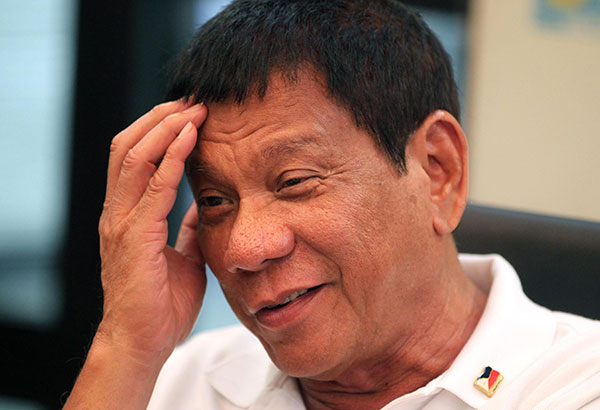
The Philippines is unlikely to get a Standard & Poor’s credit rating upgrade, the agency said on Wednesday, citing President Duterte’s unpredictability and uncertainty over his policies.
S&P also raised the possibility it might downgrade the Philippines’ rating if the new government fails to sustain the country’s fiscal and economic gains.
Duterte’s crackdown on drugs, core to a colourful election campaign likened to that of US presidential candidate Donald Trump, has claimed more than 3,800 lives since his June 30 inauguration.
The high toll and mysterious circumstances of many killings have alarmed rights groups, the United States and the United Nations, whose concerns have taunted Duterte and led to diplomatic turbulence as a result of his rebukes.
“We believe this could undermine respect for the rule of law and human rights, through the direct challenges it presents to the legitimacy of the judiciary, media, and other democratic institutions,” S&P said in a statement.
S&P said it believed “the stability and predictability of policymaking has diminished somewhat”.
It added: “A higher rating is unlikely over our two-year ratings horizon.”
The European Union became the latest recipient of a Duterte dressing-down during a speech to soldiers on Tuesday, when he berated the bloc and raised his middle finger.
He was responding to concerns from the EU parliament about drug deaths.
S&P’s blunt assessment of Duterte is among only a few that have raised concerns that his volatility and maverick style could have a knock-on negative impact on the economy, one of the best performers in Asia.
“We may lower the ratings if, under the new administration, the reform agenda stalls or if there is a reversal of the recent gains in the Philippines’ fiscal or external positions,” S&P said.
But it did affirm the country’s BBB/A-2 ratings, with a stable outlook, while flagging “rising uncertainties surrounding the stability, predictability, and accountability” of Duterte’s government.
That may run counter to sentiment locally, where his take-charge approach is seen as good for business in a country hobbled red tape, interest groups and regulatory quagmires.
The Philippines’ long history of junk-debt status ended in 2013 when it won investment-grade status, first from Fitch, then S&P and then by Moody’s, owing to the a strong external profile, low inflation and shrinking budget deficit.
S&P raised the Philippines’ credit rating in May 2014 to two notches above investment grade, the first debt watcher to do so, in anticipation of continued reforms beyond the term of President Benigno Aquino.
Philippine central bank governor Amando Tetangco focused on the positive side of S&P’s latest assessment.
“The Philippines’ ability to keep its credit rating well within the investment grade scale, which has transcended change in political leadership, is a testament that the country’s economic gains have been built from deeply rooted structural and sound policy reforms over the years,” Tetangco said in a statement.
Aside from his war on drugs, Duterte has promised sweeping changes to boost infrastructure, fix traffic woes and improve the investment framework to help lift economic growth to as much as 8 percent during his term.
Finance Secretary Carlos Dominguez said the Duterte administration wants to have robust, sustainable growth that “lifts significantly more Filipinos out of poverty”.
“If one is able to see through the noise created by negative headlines, he may have better and comprehensive understanding of the exciting, positive changes that are ahead for the Philippines,” he added.
The Philippines posted its fastest economic growth in three years in the second quarter, at 7.0 percent.

Comments are closed.